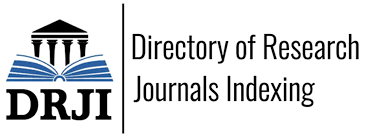Anthropocentrism in Christian eco-theology: origin and debate
DOI:
https://doi.org/10.18326/ijoresh.v3i2.197-220Keywords:
Anthropocentrism, Christianity, Eco-theology, Imago Dei, TheocentrismAbstract
This article explores the origins of anthropocentrism in Christian eco-theology, a concept mainly introduced by Lynn White (1907-1987). It also examines the subsequent debates, especially from the perspective of theocentrism, which opposes the Anthropocentric model. Content analysis is used to understand the language and social functions of anthropocentrism and Christian eco-theology in academic literature while also examining the key arguments related to the topic. Meanwhile, discourse analysis is employed to reinforce the findings. The study concludes that Lynn White’s work, The Historical Roots, initiated further contemporary debate on Christian eco-theology. As experts claimed, the error committed by White may have caused tremendous damage to the Christian tradition. However, it also enriched subsequent inquiries into the development of Christian eco-theology. Moreover, the anthropocentric framework in Christian eco-theology was also partly a result of misinterpreting Genesis 1:27, which is closely related to the various interpretations of Imago Dei (image of God). Theocentrism, as such, possibly occupies a central position in present-day apologetics regarding eco-theology in Christianity, providing further opportunities for discussion in defending Christ's relevance to the recent environmental crisis.
References
Badzinski, D. M., Jr., R. H. W., & Nelson, C. M. (2022). Content Analysis. In S. Engler & M. Stausberg (Eds.), The Routledge Handbook of Research Methods in The Study of Religion (2nd Edition). London ; New York: Routledge Taylor & Francis Group.
Barbour, I. G. (2002). Nature, Human Nature, and God. Fortress Press.
Barry, J., & Frankland, E. G. (2002). International Encyclopedia of Environmental Politics. Routledge.
Bassey, S. A. (2019). “Anthropoholism” As An Authentic Tool For Environmental Management. Int. J. of Environmental Pollution & Environmental Modelling, 2(3), 160–168. https://doi.org/10.26565/2226-0994-2019-60-8
Bennett, J. B. (1975). Ecology and Philosophy: Whitehead’s Contribution. Journal of Thought, 10(1), 24–30. https://www.jstor.org/stable/42588463
Boddice, R. (2011). Introduction. The End of Anthropocentrism. In R. Boddice (Ed.), Anthropocentrism: Humans, Animals, Environments. Leiden: Brill.
Deane-Drummond, C., Bergmann, S., & Szerszynski, B. (Eds.). (2015). Technofutures, Nature, and the Sacred: Transdisciplinary Perspectives. Farnham Surrey, England ; Burlington, VT: Ashgate.
Droz, L. (2022). Anthropocentrism as the scapegoat of the environmental crisis: A review. Ethics in Science and Environmental Politics, 22, 25–49. https://doi.org/10.3354/esep00200
Fortuna, P., Wróblewski, Z., & Gorbaniuk, O. (2021). The structure and correlates of Anthropocentrism as a psychological construct. Current Psychology. https://doi.org/10.1007/s12144-021-01835-z
Francis, P. (2015). Laudato Si’: On Care for Our Common Home. Vatican City: Vatican Press.
Grasse, A. (2017). The Impact of Anthropocentrism on Christian Environmentalism. Dialogue & Nexus, 3(1). https://digitalcommons.acu.edu/dialogue/vol3/iss1/18
Grenz, S. J. (2001). The Social God and the Relational Self: A Trinitarian Theology of the Imago Dei. Westminster John Knox Press.
Hansjürgens, B., Lienkamp, A., & Möckel, S. (2018). Justifying Soil Protection and Sustainable Soil Management: Creation-Ethical, Legal and Economic Considerations. Sustainability, 10(10), 3807. https://doi.org/10.3390/su10103807
Hefner, P. (1998). Biocultural Evolution and the Created Co-Creator. In Science and Theology (1st ed., pp. 174–188). Routledge. https://doi.org/10.4324/9780429497421-15
Hefner, P. (2005). Can the Created Co-Creator Be Lutheran? A Response to Svend Andersen. Dialog, 44(2), 184–188. https://doi.org/10.1111/j.0012-2033.2005.00255.x
Heuvel, S. C. (2018). The Theocentric Perspective of Laudato Si’: A Critical Discussion. Philosophia Reformata, 83(1), 51–67. https://doi.org/10.1163/23528230-08301004
Hiebert, T. (2019). Retranslating Genesis 1–2: Reconnecting Biblical Thought and Contemporary Experience. The Bible Translator, 70(3), 261–272. https://doi.org/10.1177/2051677019877229
Hiebert, D. (2017). “Climate Change and Christian Anthropocentrism.” Journal of Sociology and Christianity 7, no. 2 (2017): 57–63. https://doi.org/10.1016/j.fcr.2013.08.016
Ho, M. T., Nguyen, T. H. T., Nguyen, M. H., La, V. P., & Vuong, Q. H. (2022). Good ethics cannot stop me from exploiting: The good and bad of anthropocentric attitudes in a game environment. Ambio, 51(11), 2294–2307. https://doi.org/10.1007/s13280-022-01742-y
Jenkins, W. (2009). After Lynn White: Religious Ethics and Environmental Problems. The Journal of Religious Ethics, 37(2), 283–309. https://doi.org/10.1111/j.1467-9795.2009.00387.x
Keraf, A. S. (2010). Etika Lingkungan Hidup. Jakarta: PT Kompas Media Nusantara.
Kidner, D. W. (2014). Why ‘anthropocentrism’ is not anthropocentric. Dialectical Anthropology, 38(4), 465–480. https://doi.org/10.1007/s10624-014-9345-2
Lowe, B., Lamb, R., & DeBorst, R. P. (2021). Reconciling Conservation and Development in an Era of Global Environmental Change: A Theocentric Approach. Christian Relief, Development, and Advocacy: The Journal of the Accord Network, 2(2), 49–64. https://crdajournal.org/index.php/crda/article/view/463
Luetz, J. M., & Leo, R. G. (2021). Christianity, Creation, and the Climate Crisis: Ecotheological Paradigms and Perspectives. In J. M. Luetz & P. D. Nunn (Eds.), Beyond Belief: Opportunities for Faith-Engaged Approaches to Climate-Change Adaptation in the Pacific Islands (pp. 345–375). Cham: Springer International Publishing. https://doi.org/10.1007/978-3-030-67602-5_18
Makinggung, V. V., Siwu, R. A. D., & Tuela, A. I. (2021). Krisis Ekologis di Tagulandang “Muliku Wanua” Suatu Upaya Mengatasi Krisis Ekologis di Tagulandang. Jurnal Ilmiah Wahana Pendidikan, 7(4). https://doi.org/10.5281/zenodo.5174714
Mangum, J. M. (1989). The New faith-Science Debate: Probing Cosmology, Technology, and Theology. Minneapolis: Fortress Press. http://archive.org/details/newfaithscienced0000unse_f1g4
McDougall, D. (2003). Toward a Sacramental Theology for an Ecological Age. Toronto Journal of Theology, 19(1), 41–52. https://doi.org/10.3138/tjt.19.1.41
McGrath, A. (2002). The Reenchantment of Nature: The Denial of Religion and the Ecological Crisis. Crown Publishing Group.
Middleton, J. R. (2005). The Liberating Image: The Imago Dei in Genesis 1. Brazos Press.
Mingucci, G. (2021). The Place of Human Beings in the Natural Environment—Aristotle’s Philosophy of Biology and the Dominant Anthropocentric Reading of Genesis. Journal of Ancient Philosophy, 15(2), 210–225. https://doi.org/10.11606/issn.1981-9471.v15i2p210-225
Moncrief, L. W. (1970). The Cultural Basis for Our Environmental Crisis. Science, 170 (3957), 508–512. https://doi.org/10.1126/science.170.3957.508
Moo, D. J., & Moo, J. A. (2018). Creation Care: A Biblical Theology of the Natural World. Zondervan Academic.
Moritz, J. M. (2011). Evolution, the End of Human Uniqueness, and the Election of the Imago Dei. Theology and Science, 9(3), 307–339. https://doi.org/10.1080/14746700.2011.587665
Naess, A. (1973). The shallow and the deep, long‐range ecology movement. A summary. Inquiry, 16(1–4), 95–100. https://doi.org/10.1080/00201747308601682
Ngahu, S. S. T. (2020). Mendamaikan Manusia dengan Alam. Pengarah: Jurnal Teologi Kristen, 2(2), 77–88. https://doi.org/10.36270/pengarah.v2i2.28
Ngelow, Z. J. & Mandalika, L. P. R.. (2015). Teologi Tanah: Perspektif Kristen Terhadap Ketidakadilan Sosio-Ekologis di Indonesia. Makassar: OASE INTIM
Ottuh, P. O. O. (2020). Religious Approach to Non‐Anthropocentric Ethics in Environmental Philosophy. Cogito - Multidisciplinary Research Journal, (1), 7–24.
Pal, D. (2022). Christianity and Anthropocentrism within the Poems of Oodgeroo Noonuccal. SCIENTIA MORALITAS - International Journal of Multidisciplinary Research, 7(1), 128–137.
Peterson, R. S. (2016). The Imago Dei as Human Identity: A Theological Interpretation. In The Imago Dei as Human Identity. Penn State University Press. https://doi.org/10.1515/9781575064345
Petrescu-Mag, R. M., Ana, A., Vermeir, I., & Petrescu, D. C. (2020). Beliefs and Actions Towards an Environmental Ethical Life: The Christianity-Environment Nexus Reflected in a Cross-National Analysis. Journal of Agricultural and Environmental Ethics, 33(3), 421–446. https://doi.org/10.1007/s10806-020-09832-1
Provan, I. (2021). Wisdom for animals and the cosmos: The Psalms and “anthropocentric religion”. In Biblical Wisdom, Then and Now. Routledge.
Richards, E. R, & O’Brien, B. J. (2012). Misreading Scripture with Western Eyes: Removing Cultural Blinders to Better Understand the Bible. Illinois: InterVarsity Press.
Rozi, S., & Taufik, Z. (2020). Adaptation of Religion and Local Wisdom in Global Environmental Issues in Indonesia. Religious: Jurnal Studi Agama-Agama Dan Lintas Budaya, 4(3), 191–203. https://doi.org/10.15575/rjsalb.v4i3.9593
Russell, R. J. (2003). Five Attitudes Toward Nature and Technology from a Christian Perspective1. Theology and Science, 1(2), 149–159. https://doi.org/10.1080/1474670032000124568
Russell, R. J. (2022). The Eschatological Family of Life on Earth: A Christian Response to Global Climate Change. In R. D. Sherma & P. Bilimoria (Eds.), Religion and Sustainability: Interreligious Resources, Interdisciplinary Responses: Intersection of Sustainability Studies and Religion, Theology, Philosophy (pp. 155–162). Cham: Springer International Publishing. https://doi.org/10.1007/978-3-030-79301-2_18
Saputra, K. D, & Maharani, S. D. (2023). Makna Peran Manusia Sebagai Khalifah Dan Paradigma Teosentrisme Dalam Etika Lingkungan Islam. Kalimah: Jurnal Studi Agama-Agama dan Pemikiran Islam 21, no. 1 (2023): 1–23. https://doi.org/10.21111/klm.v21i1.9118
Schüle, A. (2005). Made in the ›Image of God‹: The Concepts of Divine Images in Gen 1–3. 117(1), 1–20. https://doi.org/10.1515/zatw.2005.117.1.1
Schwartz, W. A., & Cobb, J. B. (2018). Putting Philosophy to Work: Toward an Ecological Civilization. Process Century Press.
Simkins, R. A. (2014). The Bible and Anthropocentrism: Putting humans in their place. Dialectical Anthropology, 38(4), 397–413. https://doi.org/10.1007/s10624-014-9348-z
The Holy Bible, New King James Version. (1982). Nashville: Thomas Nelson Publishers.
Untung, S. H., Yahya, Y. K., & Alfionita, L. (2021). Tawāzun as Religious Approach in Post-Mining Land Management. Religio: Jurnal Studi Agama-Agama, 11(2), 165–183. https://doi.org/10.15642/religio.v11i2.1768
Waters, J. W. (2021). Toward an Ecocentric Christian Ecology. Journal of Religious Ethics, 49(4), 768–792. https://doi.org/10.1111/jore.12376
White, L. (1967). The Historical Roots of Our Ecologic Crisis. Science, 155(3767), 1203–1207. https://doi.org/10.1126/science.155.3767.1203
Whitney, E. (1993). Lynn White, Ecotheology, and History. Environmental Ethics, 15(2), 151–169. https://doi.org/10.5840/enviroethics199315229
Whitney, E. (2005). White, Lynn (1907–1987) – Thesis of. In B. R. Taylor, J. Kaplan, L. Hobgood-Oster, A. J. Ivakhiv, & M. York (Eds.), The Encyclopedia of Religion and Nature (Vol. 2, pp. 1735–1736). London ; New York: Thoemmes Continuum.
Yahya, Y. K., & Ilahi, M. R. (2021). The Doctrine of Predestination According To The Old Testament. JCSR: Journal of Comparative Study of Religions 1, no. 2, 143–158. https://doi.org/10.21111/jcsr.v1i2.6381
Yuono, Y. R. (2019). Etika Lingkungan: Melawan Etika Lingkungan Antroposentris Melalui Interpretasi Teologi Penciptaan Yang Tepat Sebagai Landasan Bagi Pengelolaan-Pelestarian Lingkungan. FIDEI: Jurnal Teologi Sistematika Dan Praktika, 2(1), 183–203. https://doi.org/10.34081/fidei.v2i1.40
Downloads
Published
How to Cite
Issue
Section
License
Copyright (c) 2024 Abdullah Muslich Rizal Maulana, Linda Alfionita , Yuangga Kurnia Yahya , Syamsul Hadi Untung

This work is licensed under a Creative Commons Attribution-ShareAlike 4.0 International License.
Copyright
Authors who publish with Indonesian Journal of Religion, Spirituality, and Humanity agree to the following terms:
- Authors retain copyright and grant the journal right of first publication with the work simultaneously licensed under a Creative Commons Attribution License (CC BY-SA 4.0)that allows others to share the work with an acknowledgement of the work's authorship and initial publication in this journal.
- Authors have the right to enter into separate, additional contractual arrangements for the non-exclusive distribution of the journal's published version of the work (e.g., post it to an institutional repository or publish it in a book), with an acknowledgment of its initial publication in this journal.
- Authors are permitted and encouraged to post their work online (e.g., in institutional repositories or on their website) prior to and during the submission process, as it can lead to productive exchanges, as well as earlier and greater citation of published work.
Licensing
This work is licensed under a Creative Commons Attribution-ShareAlike 4.0 International License.








